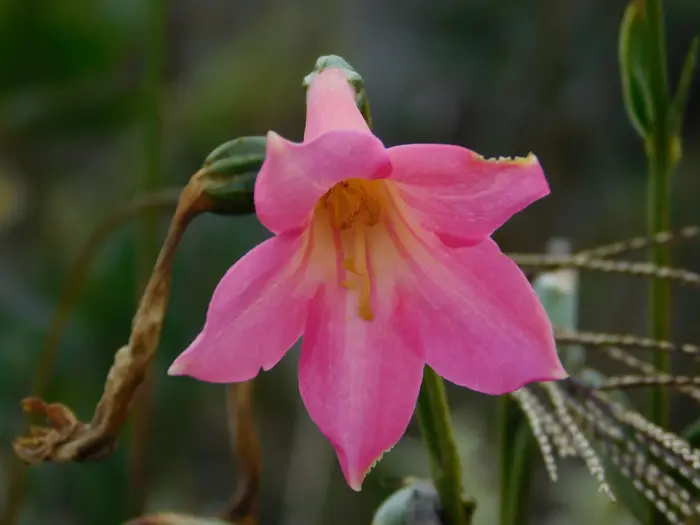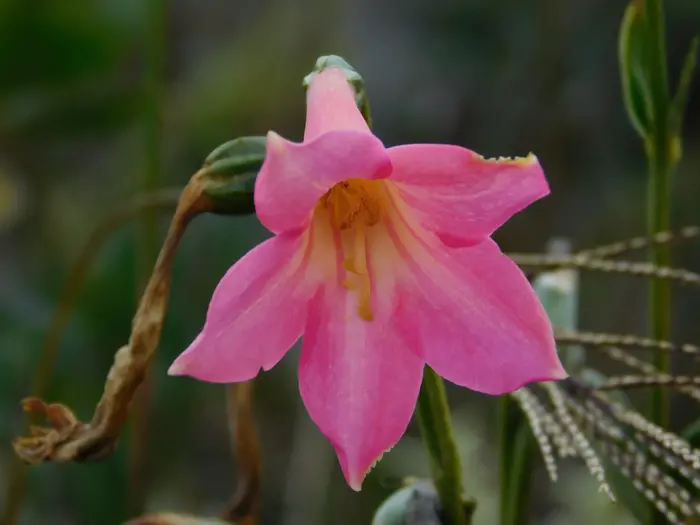Some plant species will “win” and others will “lose” as global warming forces them to move uphill, new research shows.

Credit: Bruna Campos
Some plant species will “win” and others will “lose” as global warming forces them to move uphill, new research shows.
Scientists examined the current range of more than 7,000 plant species in Brazil’s Cerrado savanna, and estimated shifts based on warming by 2040.
The fate of plant species will depend on where they live: lowland species can move uphill for cooler conditions, but mountain plants have nowhere to go.
The study was carried out by the universities of Exeter and Campinas, the Royal Botanic Garden Edinburgh and Trinity College Dublin.
“Every plant and animal species has a ‘geographical range’ – the area where conditions are suitable for it to live,” said Mateus Silva, from the University of Exeter.
“As the climate warms, plants’ ranges are shifting, with many species going uphill.
“This is the pattern we found in the Cerrado – suggesting lowland areas may become local extinction hotspots, while mountains will host new combinations of plant species.”
The Cerrado is just 0.4% of the planet’s land surface, but it is home to 3.5% of all flowering plants – approximately 12,000 species, a similar diversity level to the Brazilian Amazon rainforest.
The research team used Species Distribution Models to find the conditions in which each plant species is found, then contrasted this with fine-scale climate data including changes in temperature and rainfall.
The team chose a relatively short timescale – focussing on change by 2040 – to ensure the findings would be useful for current conservation efforts.
While more dramatic effects are anticipated over a longer period, the results suggest about 150 plant species face a “critical reduction” by 2040 – losing more than 70% of their range.
“About half of Cerrado plant species will experience a net range loss due to climate change by 2040,” Silva added.
“And more than two thirds (68-73%) of the Cerrado landscapes will see a net loss in species numbers.
“Virtually the entire Cerrado area will experience some level of species replacement due to climate change, and this will be most intense in highland areas.
“Meanwhile, lowland areas will have less plant diversity as some species become unable to tolerate the new conditions.”
The researchers say their scenarios are “optimistic”, as they only looked at climate change.
An additional threat is direct destruction of Cerrado savanna – around half of which has already been cleared to grow crops or graze cattle.
“The range loss highlighted by our study will be compounded by this habitat loss and fragmentation, which makes it harder for species to move to new areas,” Silva said.
“It’s also important to note that our study did not examine interactions between species – this complex ecology is also likely to play an important role.
“At this stage, we wanted to highlight the likely impact of large-scale patterns.
“The Cerrado highland areas reach 700-1,200m above sea level and they provide different conditions from the lowlands, highlighting the need for distinct conservation actions.”
The study was funded by WWF, University of Exeter alumni, the Natural Environment Research Council (NERC) and the Brazilian research funding agencies FAPESP and CNPq.
The paper, published in the journal Diversity and Distributions, is entitled: “Elevation modulates the impacts of climate change on the Brazilian Cerrado flora.”
Journal
Diversity and Distributions
Article Title
Elevation modulates the impacts of climate change on the Brazilian Cerrado flora.”
Article Publication Date
24-Mar-2024





